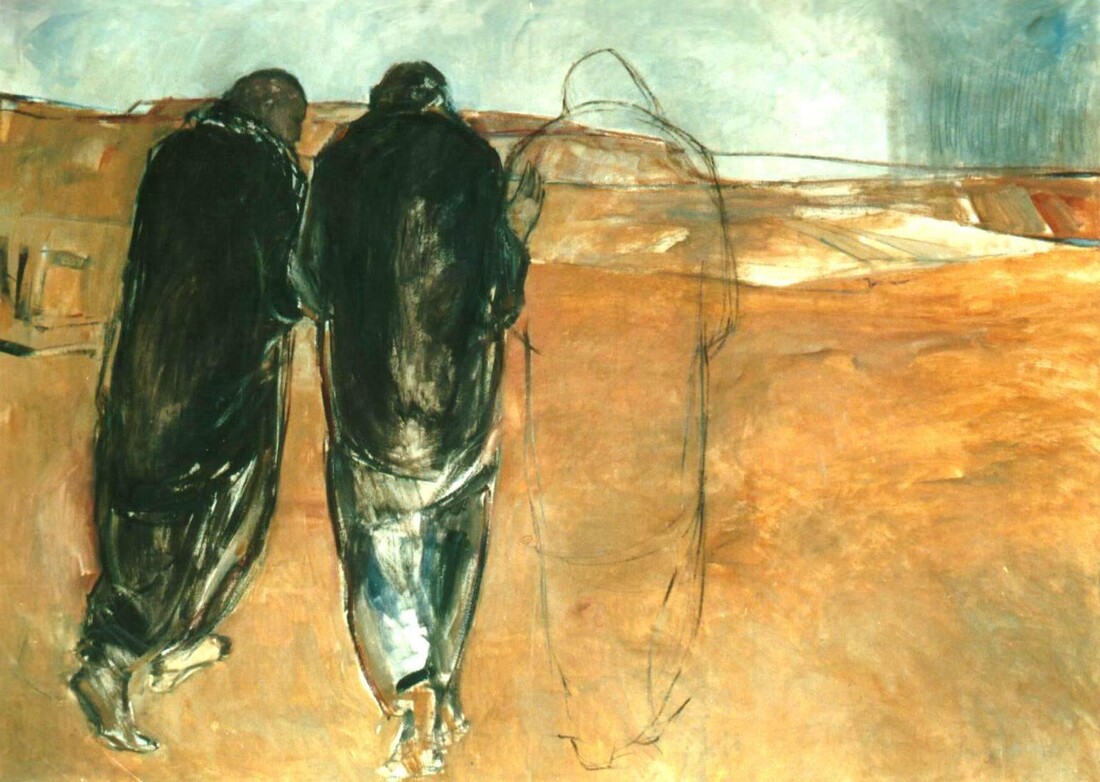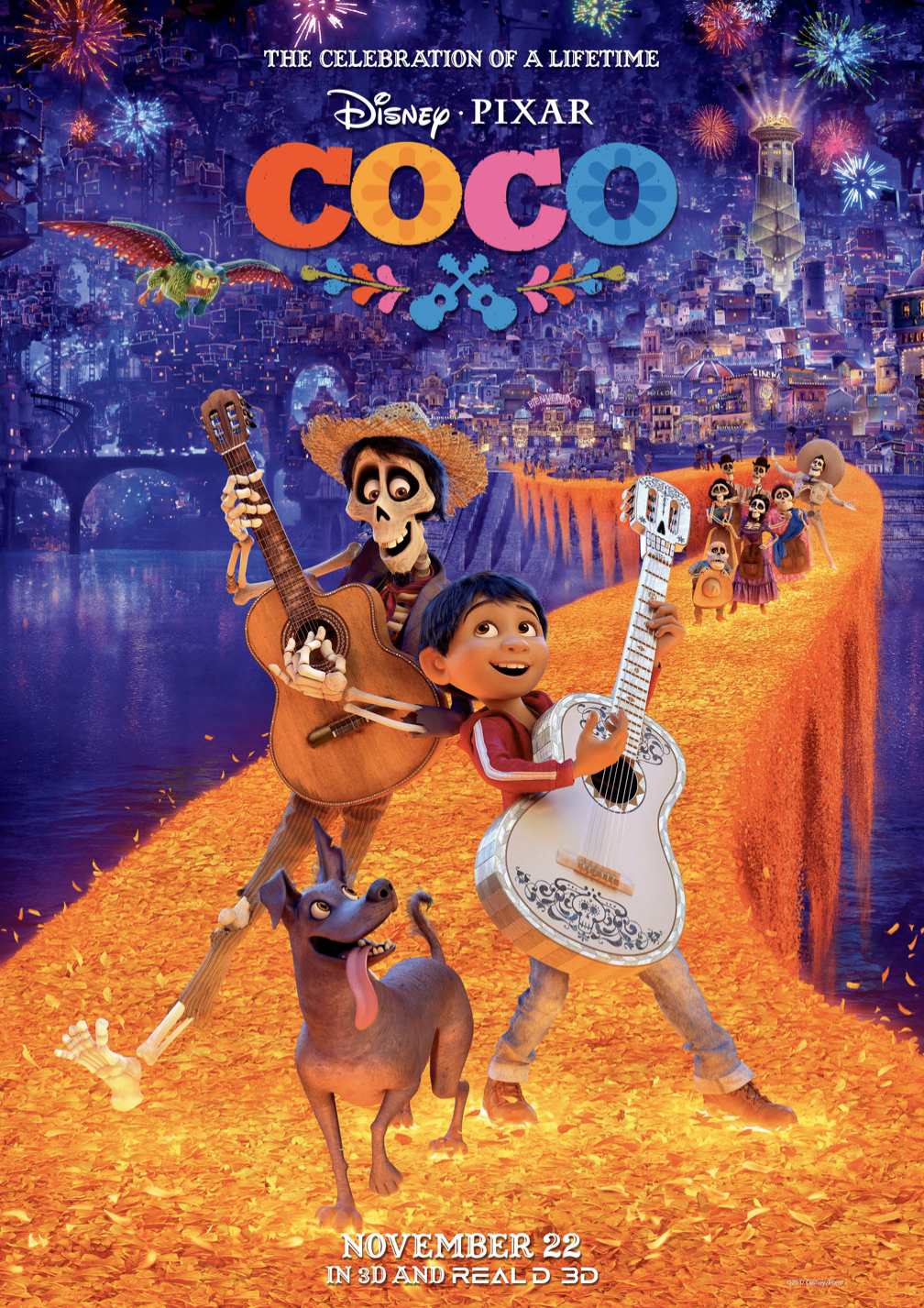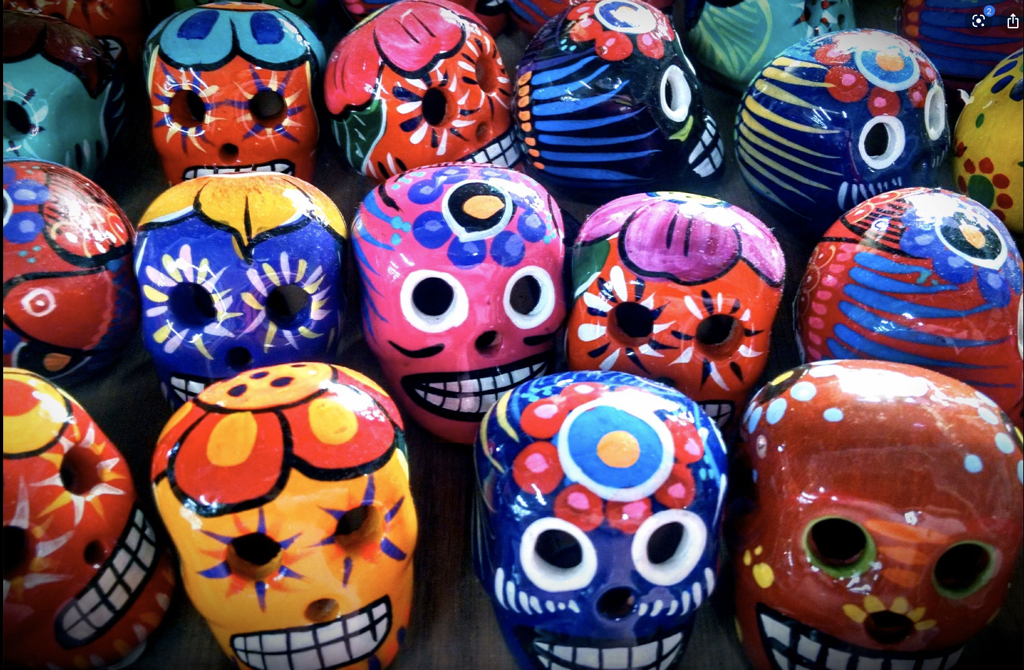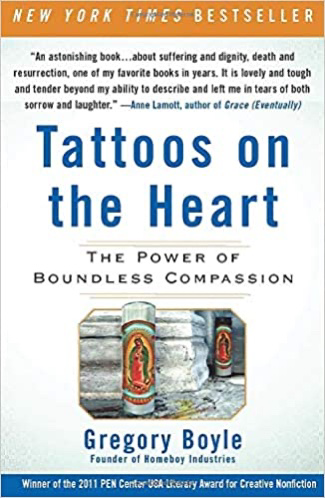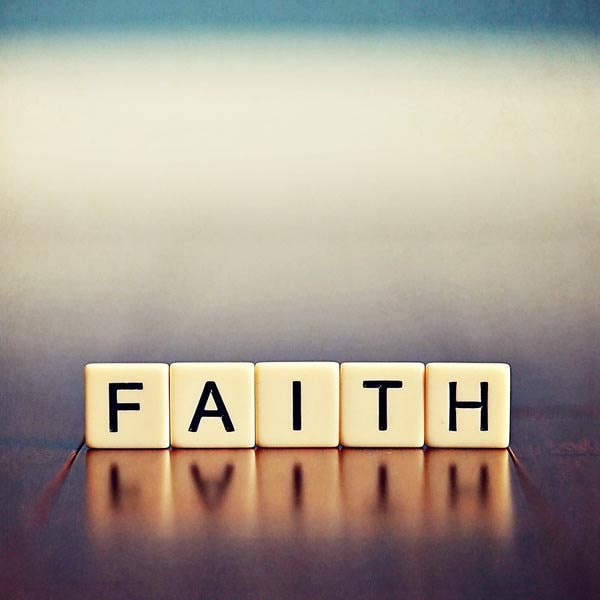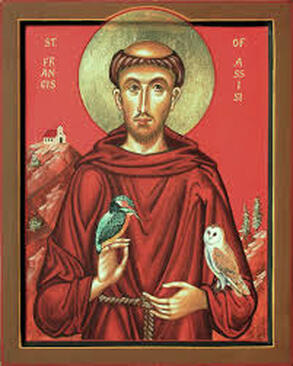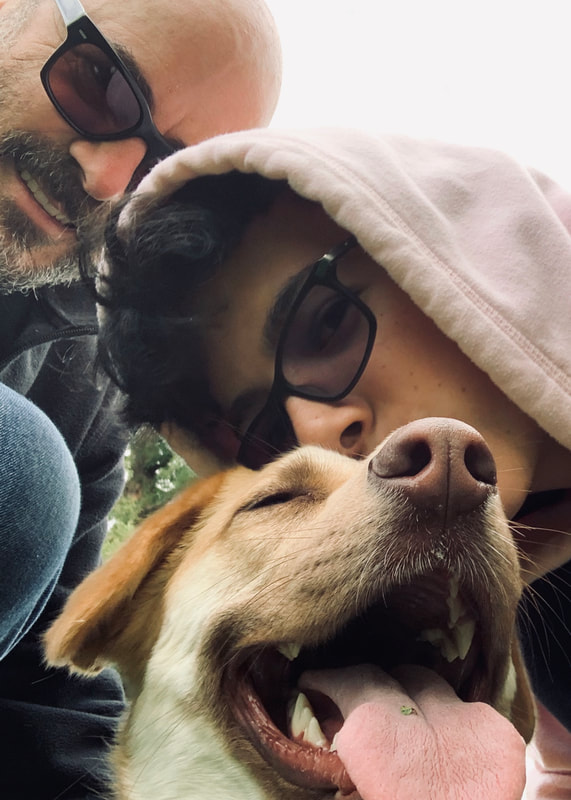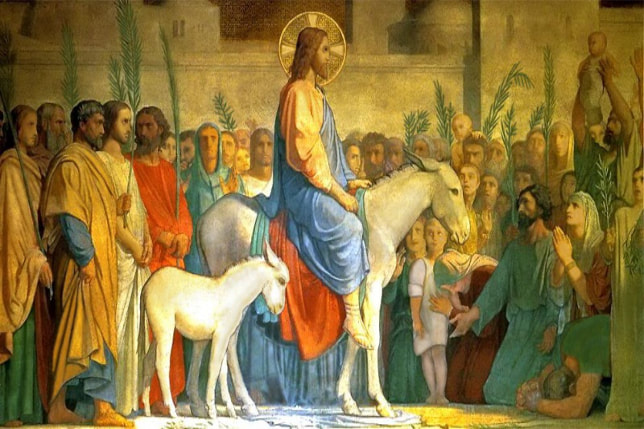Then their eyes were opened, and they recognized him; and he vanished from their sight. They said to each other, “Were not our hearts burning within us while he was talking to us on the road, while he was opening the scriptures to us?”
Three weeks after Easter, Jesus continues to surprise us. Only this time it’s not outside a tomb or locked inside a house, but along a seven-mile stretch between Jerusalem and Emmaus.
Two men, each filled with anxiety and discontent, return home, broken and defeated. Having heard the news from Mary Magdalene that morning, it’s safe to assume their conversation focused on trying to make sense of it all. Along this boulevard of broken dreams, Jesus meets them ... incognito. It wasn’t like he was wearing a wig, or some kind of disguise but for whatever reason they could not recognize a guy they’d spent all this time with. How is that possible? Had the salt of their tears blurred their vision? Maybe they were afraid to make eye-contact ... knowing they were probably wanted in conjunction with Jesus’ disappearance. How did they not recognize his voice or his disposition? This story echos that of Lois Lane who, for whatever ridiculous reason, never recognize Clark Kent was Superman. Why? Could it be because Superman didn’t wear glasses. It is here, in their brokenness and confusion, Jesus comes butting into their conversation; wanting to know what they’re discussing. It’s as if he wants to hear them testify. And testify they do. Cleopas tells Jesus all about Jesus. “We had hoped he was the one to redeem Israel.” The One who was to lift up the lowly, save the righteous, and fill the hungry with good things. They even told him what they had learned from the women in their group, making themselves accomplices in his mysterious disappearance. Jesus listens, and perhaps to comfort them he begins to interpret the scripture to reveal himself to them but from a different perspective. Still they could not see the forest through the trees. Now this is not to say they were blind. Their eyes might have been closed but their hearts were wide open.
Watch message here
They not only testified to the gospel with fearless passion but they lived their faith proudly and publicly - inviting this stranger into their community. They may not have recognized their Rabbi, but that’s not to say they didn’t see Christ in their midst. They did, in a stranger who was worthy of their story, their home, and their food.
It wasn’t until they sat at the table, and “Jesus took the bread, blessed it and broke it” that their eyes were opened. Really opened. And for one brief moment they saw with perfect clarity what discipleship was all about. Then just as quick as he first appeared, the stranger vanished from their sight. Leaving their hearts burning with this divine revelation. What does this story say to us, today? How might we see Christ in the face of a stranger? How might the Christ in us help others see to see their place in God’s heart? An ancient mystic once wrote, “The day of my spiritual awakening was the day I saw and knew I saw all things in God and God in all things.” [Rohr] When we are able to see Christ in others, we are given “glimpses into the universe as God sees it.” [Mabry] Such insight and awakening happens first in the heart. Jesus opens the eyes of his disciples by opening their hearts to those around them the hungry, the thirsty, the sick and dying. Jesus wants to open your heart too. Not just so he can come in us, but so he can come out and live, fully alive. As his empty tomb revealed, Christ is not meant to be contained but to be shared. It’s in our testimony, our hospitality, and the way we care for and love others that God awakens us and transforms us from the inside out. As Richard Rohr puts it, “When you are properly aligned with the love of God, you can’t help but to see Christ in ways that are not always obvious.” This is exactly why it’s so important for us to practice mindfulness, to be continually present wherever you are knowing that’s exactly where Christ is. This pandemic, this moment, this space is the most important place to be right now. Because this is where God comes to meet you and be with you. We are always walking on a road to Emmaus. Sometimes we’re carrying heavy hearts, or suffering from a great loss, or experiencing a crisis of faith. That’s okay. In fact, that’s perfect. Because it’s here, on this familiar path, that God comes to meet you – seeking you out by connecting with the Christ in you – to change your perspective, so you can see through God’s heart and catch a glimpse of divine life in the ordinary. I had a profound spiritual awakening about 25 years ago. I had just pulled money out of an ATM when I connected eyes with a man who had obviously fallen on tough times. His matted hair was as wild as his beard. But his eyes gentle and kind. His clothes were soiled and frayed, but his voice was strong when he greeted me. Though I responded in kind, secretly I didn’t want to engage. I just wanted to get in my car and get on with whatever it was i was going to do. As I turned my eyes to avoid him, I felt his gaze upon my heart. And heard him ask, “Do you have anything to eat?” The way he phrased it sounded as if I were the one who needed to be fed. Sadly, I shrugged him off, believing in that moment he was just another beggar looking for a handout. His question didn’t make sense until I was driving away. He saw something in me that I couldn’t. As his gaze lingered on my heart, I realized who this man was. I quickly pulled into KFC and grabbed a meal for the two of us. When I got back to the place where we met, he was gone. I drove around the block, down the alley, and through the neighborhood but couldn’t find him. He had vanished. This man was no vagrant or stranger. “He was the hungry one I did not feed, the thirsty one whose thirst I did not quench. He was Christ...incognito.” In her book Bread of Angels, Barbara Brown Taylor calls Jesus “an elusive stranger.” Sometimes we can spot him before he gets away, but most of the time we don’t realize it’s him until he’s gone. Taylor said, Jesus “prefers traveling incognito.” And for good reason. “If we were always sure who he was and where he could be found, then we would stop looking for him in every face, in every place.” I believe through Christ, God transforms the way we see and love one another by often making us blind to the obvious. Faith is never easy. It’s not supposed to be. Instead it’s a lifelong journey of seeing with open eyes eyes that changes the way we see God, others and ourselves. Faith is a lifelong journey of seeing with an open heart that welcomes Christ within us, and the Christ around us, ... Faith is a lifelong journey of seeing with open hands that reach out to Christ in every moment and down every road we go. Faith is a lifelong journey that begins at the empty tomb and walks with us until we are home where we belong...in the heart of God. Work Cited Bartlett, David L, and Barbara Brown Taylor, eds. Feasting on the Word: Year A, Vol. 2 (Louisville: Westminster John Knox, 2010) pp. 418-423. Mabry, John. Growing into God: A Beginners Guide to Christian Mysticism (Wheaton, Il: Quest Books, 2012) pp. 13-14. Rohr, Richard. The Universal Christ: How a forgotten reality can change everything we see, hope for, and believe. (New York: Convergent, 2019) pp.178; 203. Taylor, Barbara Brown. Bread of Angels. (New York: Crowley, 1997) pp. 53-56.
0 Comments
Are you following this prescription for life? Are you waking up every morning, excited as if the mind and body are shouting, “Yes! It’s a new day to live again”?
Most of us have a fear of death, and rightfully so. We don’t want to die. There’s a finality to it that rubs us the wrong way. So we spend vast amounts of money on trying to stave off death or push it away for as long as possible. We also waste a lot of time worrying about death, so much so that we forget how to live. And not just be alive. But to be fully alive, fully present, and fully aware of all that is in and around us. Let’s face it, death is a natural part of the human cycle. It doesn’t take good science to verify this, just time. But what’s important about this ancient Mexican tradition is their point of view that death is not viewed simply as a day of sadness but one of celebration. In fact, according to Coco, during Dia de los Muertos it is believed that their loved ones awake from their “after life” and celebrate with them here, in the now. They are not visible like ghosts who can be seen or heard, but as part of the Spirit - present in the the celebration of life itself. But what if they could be seen? What if we could hear what they had to say? What might the dead have to tell us about life? There’s a weird story in Luke’s gospel (16:19-31) about a rich man dressed in the finest purple linen clothes and a poor beggar named Lazarus, who was covered in nothing more than sores. The rich man constantly ignored the beggar’s pleas to be fed. One day both men die. Lazarus is carried by angels to be by Abraham’s side (I would call this heaven). The rich man (who has no name) also dies and winds up being tortured in Hades (what others have gotten the concept of hell). In their respective afterlives, the rich man sees Lazarus in a place of goodness and calls out for a sip of cold water, “for I am anguished in this flame.” Answering for the poor man is Abraham, who reminds the rich guy what he used to do for poor Lazarus while he was alive. Then the rich man pleads to the patriarch, “Then I beg you to send him to my brothers and warn them so they don’t end up here with me.” But Abraham, citing Moses and the Prophets, responds by saying, “If they do not hear what has already been said, they won’t be convinced if someone should rise from the dead.” It’s safe to say Jesus tells this story to warn his followers that what they do matters. How they honor God’s call to love others will matter both now, and later. Jesus knows he will die (after all, it’s inevitable) but I wonder if he knew he would be resurrected. This weird little story seems to suggest he didn’t really know or understand, perhaps because his focus was on living now and not dying later.
Are you following this prescription for life? Are you waking up every morning, excited as if the mind and body are shouting, “Yes! It’s a new day to live again”? Or will we just sit there like that old car gathering the dust of day to day existing?
When asked what surprised him the most about humanity, the Dalai Lama is quoted as saying: “Man... Because man sacrifices his health in order to make money. Then he sacrifices money to recuperate his health. And then he is so anxious about the future that he does not enjoy the present; the result being that he does not live in the present or the future; he lives as if he is never going to die, and then dies having never really lived.” To quote one of my favorite punk rock bands, Flipper, “Life is the only thing worth living for!” So what do you say? Let’s live it. Who knows? One day our picture will line the ofrenda next to a honey glazed donut and a super hoppy double IPA showered in Aztec marigolds. And they will say, “Damn, they knew how to live life.”
In chapter seven, the chapter I am rereading today, Boyle opens with a quote from Leo Rock, his old director of novices (a Catholic Church thing). Rock is quoted as saying, “God created us because He thought we’d enjoy it.” Today, thanks to the Covid-19 pandemic, we are stuck inside, like homies were stuck in the ghetto prisons we ascribed to them. There’s not much enjoyment happening. But I wonder if there really ever was. How many of us actually took the time to “stop and smell the roses” so to speak? We spend more time at work and in our cars go to and fro to work than we did doing anything else. There was no time for delight or enjoyment, because there was work to be done. Now many of us are out of work, or our jobs have drastically shifted, but still I wonder how many people are enjoying it. I hear a lot of complaining (most of it understandable) but very little celebration of having time to read, binge watch Tiger King, learn to cook, or whatnot. While I hate losing my quiet time to myself, I have found new joys and my eyes have been opened to see life as God sees it...which is to say, beautiful. In this particular chapter, Boyle took this idea of our enjoying what God has given us to a place that speaks to the original intent of this blog, and that is to see the beauty of God in the face of strangers. Here is an excerpt: Leon DuFour, a world-renowned Jesuit theologian and Scripture scholar, a year before he died at ninety-nine, confided in a Jesuit who was caring for him, “I have written so many books on God, but after all that, what do I really know? I think at the end, God is the person you’re talking to, the one right in front of you.” Boyle is able to see God in front of him. It’s not only how he survived all these years in the most violent piece of real estate in our country, but how he was able to find delight in the bleakest of situations. You might be locked up with others in your home, in them are you finding delight? You might be alone, so in you are you finding delight? God created us because God thought we’d enjoy it. Are we? Today is the day, this moment is the fullness of life. Look at who is in front of you - child, a spouse, a roommate - and find delight. If you are alone, look in a mirror and find delight. Then smile and enjoy the moment. For it’s there you will see God, smiling back at you, delighting in who you were made to be - poetry, music, dance, song, art, light, love, beauty - a beloved child of a God who created this cosmic realm to delight in.
A lot has been written and preached on this subject, so I don’t want to waste much time adding to the conversation. But suffice it to say, as the scripture reveals time and time again, God is faithful to us especially in our times of suffering where we get to truly live into our faith. As C.S. Lewis once said, “Difficult times prepare ordinary people to be extraordinary.”
In a letter written to the young churches in Asia Minor, Peter addresses suffering and faith with these words of comfort and assurance: Read 1 Peter 1:3-9 here In this you rejoice, even if now for a little while you have had to suffer various trials, so that the genuineness of your faith—being more precious than gold that, though perishable, is tested by fire—may be found to result in praise and glory and honor when Jesus Christ is revealed.
When the author wrote this letter, Christianity was still in its infancy, and constantly under attack. Peter tells them to hold fast to their faith in Christ, because that’s what will vindicate them in the end.
The biblical definition of faith is found in only one very small sentence in the book of Hebrews, that states, “Faith is the assurance of things hoped for, the conviction of things not seen" (Heb 11:1). In other words, faith is a firm belief in something for which there may be no tangible proof. “It’s a mystery of the heart that the mind wants to solve.” Only it can’t. Easter season is a time we celebrate the biggest mystery of faith, the resurrection of Christ. This is hard for the human mind to comprehend. I mean let’s be real, nothing in life is more certain then death. The resurrection contradicts every instinct and scientific fact we know about life. I have friends who argue, “If it can’t be explained, it shouldn’t be believed.” But facts are not faith. Facts begin in the head. Faith begins in the heart, where God’s love is forever engraved. Nouwen believes when Jesus talks about faith, “he means first of all to trust unreservedly that you are loved by God.” Believing this allows us "to abandon every false way of obtaining love" to which I would add, and keep our faith focused where it belongs. On the faithfulness of God. We see this in the story of Job. While we like to talk about how Job kept his faith in God despite the suffering he was enduring, the real story is about God’s faith in him. Job was only able to endure because he knew it’s impossible for God unfaithful. Peter’s letter encourages us to keep our faith in the one who remains faithful to us. How then are we to keep this faith? By remembering this acronym: Fearless Action Inherits Trust and Hope.
watch the message here
First and foremost, faith requires us to be FEARLESS. I’m not talking about being dangerous or reckless, but confident and courageous – living out your faith in such a way that people can’t help but see Christ alive in you. Again, it’s not our faith per se, but God’s.
Think about it like this, we are made in God’s image, which means we’re connected somehow to the Divine source. What God has, we have. All of God is available for you and me. God’s love is your love. God’s patience is your patience. God’s forgiveness and mercy and grace are all connected to you too. That connection is Christ. We can face life’s challenges fearlessly because our faith is plugged into God. Through Christ This isn’t to say we won’t be afraid at times, we will. After seeing the tomb empty, the disciples were so afraid that they lock themselves in a house “out of fear for the Jews.” They saw what their own people were capable of and were scared for their lives. Who could blame them? Fear is a natural instinct designed to save us from harm or getting hurt. I see faith in the same way. As Paul always declared, “By faith we are saved” (Ephesians 2:8) Thus, we need to live it fearlessly – sharing God’s love with one another with boldness and confidence. After all, “Faith without works is dead” (James 2:17). Faith is ACTION – a way of practicing heaven now by putting God’s love into motion. This is exactly what Jesus did everyday – loving the unlovable, touching the untouchable, forgiving the unforgivable. He blessed the weary, fed the hungry, healed sick and dying, and of course sacrificed all that he had so others might see God’s glory in their midst. And believe. He was the living proof of God’s faithfulness. Eventually the disciples will overcome their fear and faithfully live as Jesus did. God had faith in them. And God has faith in us. By living into our Christlike selves, we not only give evidence to who God is but also to who God made us to be. As the Apostle John wrote in his epistle, “God is love, and those who abide in love abide in God, and God abides in them (1 John 4:16) and "everyone who loves is born of God" (1 John 4:7). Peter calls this a new birth where we INHERIT God’s name. A couple of years ago, I inherited a small amount of money from a friend after she passed away. It wasn’t a lot, but it did help to keep us going for a month or so. Inheriting money is great… while it last. But Peter speaks of a different kind of inheritance one that is “imperishable, undefiled, and unfading.” To think that God’s faith in us is so great that God is willing to ante up all the treasures of Heaven to save us; including Christ himself, through whom we were adopted and named sons and daughters. For whatever reason, God has faith in us and has invested all of heaven to give us an everlasting, never fading, one size fits all love. Like Jesus, Job, and all the saints before us we can TRUST God knowing God is forever faithful. The Greek word for “Faith” is pistis, which literally means “trust.” When Jesus tells someone he has healed, “Your faith has saved you,” he is saying that they have found new life because they have surrendered in complete trust to the love of God revealed in him [Nouwen]. Such trust not only saves us, but it allows us to live fearlessly into the true greatness of our inheritance. Fearless Action Inherits Trust. This begs the question, where are we really putting our trust? In government or corporations? In religious doctrines, or ads that pop-up on Instagram? How ironic is it that “In God We Trust” is written on our money yet we put more faith in Wall Street. Jesus showed us how to trust in the unconditional love of God by surrendering to it with his whole heart. Like Job, Jesus trusted the faithfulness of God even as he suffered rejection, betrayal, torture, and death. As we are all suffering in this pandemic, I invite you to ask yourself...what are you clinging to? And what are you hoping for? Peter tells us in Christ we have HOPE. We know that no matter what the world throws at us, God does not give up on us. Christ is that proof we seek. We spent a lot of time talking about hope during Lent. I described it as more than optimistic thinking, but a way to grow your faith and bring you closer to the very heartbeat of God’s love for you. That’s why Peter doesn’t just call it hope. But living hope. It’s living because Christ is alive. Standing at the empty tomb, Peter didn’t understand this at first. His faith was shattered, and his hope squashed. It wasn’t until Jesus showed up where the disciples were hiding out that his faith and hope found new life. I know most of us haven’t had the privilege to see our resurrected Lord in the flesh. Peter speaks to this, “Although you have not seen him, you love him; and even though you do not see him now, you believe in him and rejoice with an indescribable and glorious joy” (1 Peter 1:8). This echoes what Jesus said to Thomas, “Blessed are those who have not seen and yet have come to believe” (John 20:29). Despite their lack of faith and the loss of hope, God never gave up on them. Through Christ, God opened the eyes and hearts of the disciples in the most unbelievable way. The same is true for us. God is not done with us yet. Even in our suffering, when life seems bleak and dark, God shines the light of Christ for all to see. God’s faith is in us too so we can shine like Christ and bear witness to God’s glory to those around us who are struggling. By living out our faith, the fullness God’s love can be seen, felt, touched, and heard. It allows others to trust God and feel hopeful in times of hopelessness. More importantly, when we recognize and accept the Christ in us, we are able to truly see Christ alive in others. In closing I want to share something Mother Teresa used to say about her faith. Throughout her lifelong work in the slums of India, she would look at a person and say, “This is hungry Jesus, I must feed him. This is sick Jesus. This one has leprosy or gangrene; I must wash him and tend to him.” Talk about fearless action inheriting trust and hope. If you ask me, this is why God doesn’t give up on us. I believe we all have the same faith as St. Theresa of Calcutta. That is, we all have the faith of God etched on our heart. Work Cited Nouwen, Henri J.M. Trust Unreservedly That You Are Loved, excerpt from You Are The Beloved: Daily Meditations For Spiritual Living (accessed on April 13, 2020). USA Today. Is the Coronavirus an Act of God? Faith Leaders Tough Questions Among a Pandemic, April 2, 2020 (accessed on April 18, 2020). https://www.usatoday.com/story/news/nation/2020/04/02/coronavirus-god-christain-jewish-muslim-leaders-saying-deadly-plague/5101639002/
We all go inevitably go through it. We sometimes don’t even know we are doing it. For example the human body sheds dead skin every day so new skin can grow. Because of our skin, we actually die these little deaths every day. Likewise, whenever we learn a new concept - especially one that causes an abstract thought to die only to be reborn as a new and hopefully evolved idea.Death, or the end of one thing, causes something new, and often the case, something better to happen. Some call it reincarnation. Some call it evolution. Some call it life. But the truth is, we live. We die. We are resurrected into something new. Thus, learning how to live (especially in this tension of life and death) will hopefully guide the way will die. To live well helps us to die faithfully. To find meaning in life despite our imminent death. To do this is to live with hope knowing we've been given this day to live out our best selves. Dying is an art form that is equally as important as living because out of death comes new life. The natural world is a perfect example of this. "The natural world itself is the supernatural,." writes Richard Rohr. It is a great teacher to help us understand this concept of death and resurrection. Think about it like this: A tree grows and produces acorns. In order for the acorn to drop it must cut itself off from it's life source, the tree. In one way or another, the acorn falls from the tree. It's buried by dead leaves that begin to breakdown both itself and the acorn. The shell eventually gives in and cracks open and a new tree begins to grow. Along the side of my house are the most impressive ferns. In the hottest summers I have watch them burn up and die. Come the next winter, if it’s wet enough, they come back again. Taking on a new shape, new color, and a new life. The science behind it is simple. Each leaf of the fern has tiny little spores that float in the air or drop to the ground and die. And in their death they are resurrected as a new plant complete with their own spores that will break away in the wind. The genius of Jesus' teaching is that he reveals this idea that God uses the tragedy, betrayal, pain and suffering and even death itself to bring us to a larger sense of who we are. Jesus taught, "Unless the single grain of wheat loses its shell, ir remains just a single grain (John 12:24). Our shells, the way we see things and do things, must be cracked for new growth to happen. It's the way we set our roots deep down in the darkness of the soil long before we push our way upward and begin to grow. In God's divine economy, everthing is used to create life...even death. Some call this science. Others call it God. But I think it's one in the same. What else could it be for one who believes in creationism? As Paul wrote, “from the beginning until now, the entire creation has been groaning and one great act of giving birth.” The divine, as Rohr argues, wants to manifest itself in visible form. We could make this argument for Jesus and the incarnation. We see how this mystery is keeps being recapitulated at every level of creation as it evolves, and emerges anew.
Think about that when you think about death. What is God doing in the science of life? It is more than an evolutionary body, it is "an internally pregnant body as well." God’s creation is so perfect that it continues to create itself from within. The Easter story tells us this, which is why Paul can rightfully state “Death has been swallowed up in victory. Where, O death, is your victory? Where, O death, is your sting?”" (1 Cor. 15:55). It is true that we will all die. But if we look at the world and all that is in it, we will see that we too are part of this evolutionary and resurrected life. And have been since the beginning. Our bodies change. Our thinking change. Our souls even change as we become more enlightened by this basic idea that we all die and we all are resurrected. This isn’t based on a caste system that offers different levels of life depending on how well you lived in a past life (or lives). It comes from the grace built within the scientific, evolutionary process of a divine creation. I call this salvation. A healing salve that can only come from one source, the originator of all life. The one who heals our brokenness and uses our pain to grow new life. And the tool by which this is accomplished is grace. Grace is the Divine healing and unifying everything together, ‘everything in heaven and everything on earth’ (Colossians 1:16). “This is not an individualistic or anthropocentric notion of salvation,” but as Rohr and others have pointed out, “it’s happening to the whole of creation.” Call it Christ. Call it science. Call it grace. The purpose is still the same. To heal and unify all of life into one circular flow. However, we're not always keen on this idea of grace, that great gift given freely to all. We fight it because it equalizes instead of capitalizes on this everlasting circle of life. Like this COVID-19 virus, grace doesn't pick and choose who gets it, no walls or borders can stop it, and no one individual or nation own it. Grace is unfair by virtue of its inclusivenss. What's so amazing about grace is that once it's added to the equation, power over others ceases. Power uses death as a means to control. We have seen this time and time again throughout the entire evolutionary process. It’s what has given us the nation building and nationalism spirit that is still alive today. This is what gives us inequity and injustice and any other form of violence that has robbed people of human life and true living. Yet even in the worst that human beings can create comes the best of humanity. I can only believe that is because grace was already part of the original design. Grace defeats death through resurrection. Thus, to live well requires us to live our lives in a way that grace abounds by showing grace and goodness to one another. As Rohr put it, "Christian faith is saying that the pattern of transformation is always death transformed, not death avoided. The universal spiritual pattern is death and resurrection, or loss and renewal, if you prefer. That is always a disappointment to humans, because we want one without the other—transformation without cost or surrender." Long before this pandemic hit our world hard, we were already killing ourselves in more ways than one. Over working, over eating, over forestation and over fishing. Our air had become polluted. Bodies of water unusable. We showed no mercy or grace to the created world around us, and now the world has rebelled. Teaching us that we humans do not have the power over creation. It only took a small virus to tell us otherwise. If we can learn anything from this massive reset, may it be this. May we evolve different and new. With eyes that see the divine in all things - animals, plants, sky, water, and even in one another - may our hearts see the world subjectively through the lens of grace.
In her March Newsletter from The Omega Center, entitled “Hope in a Time of Crisis,” Franciscan sister and scientist Ilia Delio wrote:
"Christianity can help us realize that death and resurrection are part of the evolutionary path toward wholeness; letting go of isolated existence for the sake of deeper union. Something dies but something new is born—which is why the chaos of our times is, in a strange way, a sign of hope; something new is being born within. Out of chaos, a star is born. Breakdown can be break through if we recognize a new pattern of life struggling to emerge." Work Cited and Insprired by: Delio, Ilia. 2020. “Dear God,” The Omega Center Newsletter, March 16, 2020, https://omegacenter.info/dear-god/ Rorh, Richard. Yes, And...(Cincinnati: Franciscan, 2013 ) pp. 134-35.
Did Mary have trouble sleeping? We all know how hard it is to sleep when your heart is broken, or when your mind is racing, trying to make sense of all that’s happened. Maybe she came before dawn because she knew what would happen if someone saw her there. Like a thief in the night she went to the graveyard, only to discover someone else beat her there. The stone to his tomb had been moved. And Jesus’ body was missing!
To the 21st century Christian, this is our Good News. The Easter present we long for. We’re not afraid of an empty tomb because we know God has raised Jesus from the dead. To us it’s like an empty rabbit cage, we know it’s not the end of the story. It’s the beginning of something greater. We can celebrate today because we’ve had two thousand years to make sense of it all. But for Mary, it was just one more disappointment added to her weary heart. No wonder she runs away, to go be with someone who can relate to what she’s feeling. That person is Peter, who perhaps out of guilt or excitement, raced to the tomb with the other disciple. When they get there, they too are stupefied. Like Mary, they have no idea what to make of the emptiness that they were seeing and feeling. Then the other disciple, who reached the tomb first, also went in, and he saw and believed; for as yet they did not understand the scripture, that he must rise from the dead. Then the disciples returned to their homes.
According to John, they saw but didn’t understand what God was doing. They had no idea this is what the Kingdom of Heaven looks like. Who could blame them? The cross has robbed them of their joy. And now, the empty tomb has robbed them of what little hope they had left. When I put myself in their shoes, all I can think about is how empty I would feel without Christ in my life. Something would be missing for sure.
It’s safe to say Jesus, in more ways than one, has saved me from myself. He has taken on my burdens. And tended to my deepest wounds. He fills my darkest moments with his divine light. He continues to calm the storms around me and in me and gives me peace. How blessed are we to know that this empty tomb is just another way God is revealing to us who Jesus really is. Just as it was in a dirty stable, God comes to us in places we least expect. Even though they have spent years traveling with Jesus, witnessing the Kingdom of Heaven firsthand the disciples can’t see that God’s finger prints are all over this place. That God is the mastermind behind it all. The one who robbed the tomb of death. In the coming days, Jesus will reveal himself to them and make sense of everything. But for now, Peter and the other disciples run and hide. They’re smart enough to know that you don’t want to be at the scene of a crime when the cops show up. Yet Mary stayed behind. She wasn’t afraid, nor did she give up hope. Instead she poured out her heart out to God. When Jesus heard her weeping, he moved to comfort her. That is so much like Jesus isn’t it? Always there, putting the needs and wellbeing of others first. Still, it’s not until Mary heard him speak her name that she really got what’s going on. In one gesture of kindness Mary was able to see Jesus in a new light. And to comprehend what God was up to.
watch the message here
Easter is the dawning of a new day, where we wake up to a new reality. God is revealing God’s self once again to the world. A proclamation of God’s love for you and me. Jesus is the visible presence of God’s love and the empty tomb is the proof of how far God will go to love us...and to save us. Not from our sins per se, but from ourselves. Jesus is calling you by name so that you might recognize God’s love for you in him.
Moreover, Jesus comes to you, to show you how to be that love in the world. Just as Jesus told Mary to go and tell others, He is calling on us to do the same. To go and proclaim God’s love in such a way that others will see and understand. And be comforted and cared for. Some call this salvation. Others call it healing. I call it Easter. Because this tomb is empty, we live. And can proclaim the good news with a joy filled heart - without fear or worry. Because this tomb is empty, we can walk through the darkest nights, we can walk through the shadow of death, knowing Christ is illuminating our way. Because this tomb is empty, our hearts can overflow with God’s love, and we can share that love knowing there is plenty to go around. Because the tomb is empty all who mourn will be comforted; the merciful will receive mercy; and the hungry will be fed. Our pain and suffering, like the tears and anguish they bring, will be no more. Death has lost its sting! Christ has risen...and it is Christ who will raise us up. This is what the kingdom of heaven is all about. Healing and restoration. Living in the fullness of God’s love. This is salvation. This is Easter. The tomb is empty. Christ is alive. Because he lives, so too can we. Like the bunny, Christ cannot be contained to a cage. Instead he lives inside us, through us, and all around us. Once we see how God reveals himself to the world in him, then we can understand why God sent Christ in the first place. As it is written, “For God so loved the world that he gave his only begotten Son so that those who believe will have life...everlasting.” Easter is about living forever in Christ. Today is a day to turn our hearts and our whole being towards Christ the visible presence of God’s love and righteousness. It is Christ who calls out to us. And gives us the assurance that there is no boundary to God’s love for us…not even death. Easter is the day we are called to abandon our dark tombs. And run after the One who loves us unconditionally. As you move from this day into a new week, I hope you will remember this. It’s not just an empty tomb that we celebrate, but the everlasting life that flows from it. If you haven’t already done so, I invite you to open the cage of your heart and run free with Christ now and forever, Amen. Given the title of this blog you might get a little paranoid. You might think I’m tracking your data to sell to Russian trolls. Or that the this is just a cover for the CIA to gather your personal information. Not sure why you’d think that. And I really hope you aren’t. That way we can move on with what I would like to share.
It’s from a daily devotional written by Richard Rohr from the Center for Action and Contemplation. (You can sign up for his daily emails here) I’ve been reading and studying his work for years. I’ve also been sharing his words in this blog. They have been both enlightening and transformative in my spiritual journey. Today’s is no different. I would like to share the devotional because it really touches the heart of our mission here: to see Christ in all people...including ones self. “You are not important, and yet Jesus says, “Rejoice because your name is written in heaven” (Luke 10:20). “We need a still point in this twirling world of images and feelings, especially in a time such as ours. If we are tethered at some center point, it is amazing how far out we can fly and not get lost. The True Self, "our name in heaven," is our participation in the great “I Am.” It is what Peter daringly calls the “ability to share the divine nature” (2 Peter 1:4). This True Self is characterized by contentment, an abiding low-level peace and happiness. Every now and then it even becomes pure joy. “If there is no list of names in eternity, no confidence that we are known and chosen by God, we are burdened with making a name for ourselves every day. We must be self-made, every person out for themselves in a dog-eat-dog world, vying with one another for zero-sum dignity and importance. “Instead of comparison, envy, competition, and scarcity, authentic spirituality is an experience of abundance and mutual flourishing. We are tempted to count only our material and ego gifts which decrease with usage, whereas spiritual gifts actually increase with each use, in ourselves and in those around us. “If we have no foundational significance, we must constantly attempt to self-signify and self-validate. Everyone is then a competitor and rival. We cannot help but be pushed around by our neediness and judgments, and we will push others around too. If we have no unshakable experience of divine approval, we will be lost in fragile momentary experiences of “victory” that cannot be sustained or really enjoyed. “We must find our North Star outside our own little comparative systems or we will be lost in rivalry and daily defeat. It is a whole different way of looking at what we mean by “God saving us." God first of all saves us from ourselves, our emotional neediness and hurt, and our obsessive mind games. Then the truth of being is obvious and all around us. Our importance is given and bestowed in this universe as part of the unbreakable covenant between us and our Creator. We are declared important “from the beginning” (Ephesians 1:4, 9), and when we really know it, we have no need to prove it. We are reminded who we really are in God when Jesus tells us that our “name is written in heaven.” “Surely God holds medical workers and first responders close to God’s heart right now, as they put their lives on the line to support us all. The courage they are showing is the kind of courage that comes from knowing the value of life. I pray we might all operate from that place as we struggle through the coming days.” I hope this sparked some comfort in you knowing that you are loved in such a way that only God knows. And by leaning into God, in good or bad days, we discover ourselves who we are and what we are made of and made for. LOVE. Adapted from Richard Rohr, Adam’s Return: The Five Promises of Male Initiation, (Crossroad Publishing Company: 2004), 44, 155–157 Pandemics come and go...albeit they don’t go quick enough. As I write this, I like you am tucked safely away inside my home. Yes, tucked away with three teenagers who go from not talking to me to all talking at once, or from getting along to battling it out. Yes, I am tucked away with a spouse who has heard all my jokes, put up will all my sighs of boredom, and who, I fear, will put a pillow over my face one night “to protect me from the Coronavirus.” And yes, I have a dog who follows me everywhere believing I will dispense snacks every time she pats me with her large paws and now way overgrown nails. Pandemics come and go...albeit not quick enough for my sanity. This one seems personal. Part of my daily sanity ritual is to read from the various blogs and devotional writers I have signed up for. Seth Godin is one such person (sign up for Seth’s Blog). He writes daily on the intersection of life and business. Today he offered this pearl of wisdom: Enough little things. We rarely have complete control over the big issues. But the way we interact with each other, the small kindnesses, the extra effort–it adds up. One after another, day by day. It might be enough to change someone’s day. And then the ripple continues. Yes, I am locked away with four people I adore and love. Yes, I had the privilege of being loved unconditionally from an animal who trusts I will respond in kind. Yes, I have many little things all around me that remind me of the abundance of life that God has given me. While I have zero control over a virus that is hellbent on doing as much damage to this creation as it possibly can, I do have control over the way I love and respond to those I love. It’s those little things.
Seth Godin. Seth’s Blog April 6, 2020. https://seths.blog/2020/04/enough-little-things/
A very large crowd spread their cloaks on the road, while others cut branches from the trees and spread them on the road. The crowds that went ahead of him and those that followed shouted, “Hosanna to the Son of David!”
Read Matthew 21:1-11
Like I said, Jesus and his followers come to Jerusalem for Passover a celebration which Shane Claigborne calls “an anti-imperial Jewish festival.” If you do not know, Passover commemorates God’s victory over the oppressive yoke Egypt placed on Israel. Even the waving palm branches was symbolic of God’s victory over the foreign occupation which sparked the Maccabean revolt some 150 years before Jesus was born. By the time of this weird little parade, around the year 30 AD, Judea and its capital Jerusalem had been under Roman occupation for 90 years. God’s people weren’t happy by this. And Rome knew it. Yes, Caesar was the most powerful man in the world, but even he knew he couldn’t rule Jerusalem without incorporating the help of the Jews. He gives positions of power to wealthy Jewish families because Rome trusted wealth. And the wealthy trusted power. (Boy, how little we have changed.) Rome made sure the rich were not just the secular rulers but also the chief priests, elders, and scribes who ran the Temple. This powerful new ruling class grew their coffers by exploiting the poor. And the religious people found loopholes to allow it. If you’re familiar with Jesus’ ministry, you know that he had a generous heart for the poor and exploited. He goes after the religious elites for allowing it to happen. In fact, this particular parade will end with Jesus riding to the temple where he will chase out the money changers and loan sharks. Despite the imbalance of power, both the rich and poor hated living under Roman rule. They longed for a King David-like figure, a messiah who could defeat Caesar and all his minions. In rides Jesus. A young prophet from the wrong side of the tracks who has garnered a great following. All eyes are on him. Including those of Pontus Pilate and King Herod. They knew Passover was a volatile time, one that was often marked with riots and uprisings. But Rome had ways of making sure things didn’t get out of hand. Like the crosses that lined the hillsides, imperial military parades were used as a reminder of what will happen if you do not obey Caesar. It’s believed that when Jesus entered the city, he did so on the heal of Pilate who had just marched through the streets with his cavalry, chariots, and foot soldiers in tow. Pilate rode on a warhorse, a symbol of peace through power. In contrast, Jesus came on a small donkey, a symbol of humility and humbleness. Pilate had a well-armed military. Jesus had a few fishermen armed with a heart full of love.
watch the message here
It’s been said that Jesus was mocking Pilate’s military parade. Certainly, Jesus must have known how dangerous that would have been. When the crowds shouted, “Hosanna,” an Aramaic word that means “Save us,” even Jesus would have known this was a subversive act. It was believed throughout the empire that salvation came from Caesar. To think any differently would get you nailed to a cross.
To those shouting, it was worth the risk. They knew Caesar or his minions wouldn’t come to their rescue. They believed God would. So they that is where they put their faith. For a day or two they were hopeful Jesus was the one God sent to save them. But by then end of the week, as they watched him being nailed to a cross, even his closest friends had lost all hope. How lucky are we to know better? We know God hears our cries and saves us...not because Jesus died, but because he lives. Hope and resurrection. This is what it is all about. In the movie, “The Shawshank Redemption,” a young prisoner named Andy is learning to survive in this new world. When the system tries to break him, Andy tells his friend Red, “There’s something inside us that they cannot touch.” When Red asks what that is, Andy whispers, “Hope.” More than positive thinking or wishful optimism, hope is what keeps us going. We see it in prisons, hospitals, and on the battlefields of life. Hope is what we cling to when all else seems to have abandon us. Hope is what gives those battling CV-19 a fighting chance. During my own battle with cancer, I had hope that God wanted me to do something more meaningful with my life than to die. We need hope. Without it, a vulnerable student can get discouraged and drop out of school. And a fragile addict easily returns to old habits. Without hope, loving parents give up on a child, married couples throw in the towel or worse, they stay in an abusive relationship. Without hope, the virus wins. May we never forget that if the Roman cross couldn’t beat God, neither can a virus. This is not to say we don’t need to be smart and stay sequestered inside. We do if we want to stop the spread of CV-19. But we need not be afraid. We have hope. We always have because we have Christ. And because of Christ, we have Resurrection. Resurrection is God’s promised grace coming full circle. It wasn’t an after-thought. Or a loophole slipped in because God made a mistake. Resurrection was built into creation long before we were. We see it throughout life. A wave crashes and dies only to return to the water from which it was formed. A sunflower can only grow once its seed dies, and its shell destroyed. Although we stop breathing, the molecules and energy that make up who we are continues to live. Because of resurrection, we live – changed and transformed by God’s undying love for us. God is a God of life. Life that comes through death and resurrection of Christ who rode into Jerusalem and turned the world upside down. At the end of “The Shawshank Redemption,” Andy sends a letter to Red that says, “Hope is a good thing, maybe the best of things, and no good thing ever dies.” This is a reminder of what Jesus’s death revealed to the world – the universal truth of God’s salvation. Life. And life everlasting. Resurrection is God’s promise to us that no virus, war, or empirical fear can stop us from living into our Christ-like selves. Noting good ever dies. And so let us live, by bearing the fruit of God’s love with each other. We know how to do this, because Christ showed us the way to our redemption and salvation. We must never lose sight of him but stay close to him, and learn from him how to live and love in the fullness of life. When your cross seems too hard to bear, when the pressures of life are crushing you, and the world around looks dark and grim, there is the light of hope that radiates through Christ, who strengthens you and empowers you to get through whatever life hits you with. Even death. It is my hope that you will lean on Christ today, to open your heart and welcome him into every aspect of your life. In Christ we know the solemnness of any cross we face is bookended with the triumphant arrival of Easter. An empty tomb is proof of God’s heart and intensions for creation. Viruses come and go like kings and their empires. But in Christ, God’s love for us remains. It’s already been engrained and etched in every living thing throughout creation. Including you and me. As St Paul taught us, God’s love has been implanted in our hearts by the Holy Spirit that already dwells within us – just as it did in Jesus the Christ, the anointed King who rode into our lives with only the full power of God’s love in his arsenal. To him we lift up our voices and shout our glorious “Hosanna!” Even though we cannot line the streets right now, we can let our hearts sing this joyous refrain. “Blessed is he who comes in the name of the Lord. Hosanna in the highest.” Works Cited Bartlett, David L and Barbara Brown Taylor, eds. Feasting on the Word, Year A, Vol. 3. (Louisville: Westminster John Knox, 2011). Claigborne, Shane and Chris Haw. Jesus For President. (Grand Rapids: Zondervan, 2008) p. 122. Gau, Terry Menefee. Shaken to the Core, April 9, 2017 (accessed on April 2, 2020) http://www.rageforexplaining.com/shaken-to-the-core McAllister, Stuart. Cynicism and Hope. Slice of Infinity. Atlanta, July 7, 2017 (accessed on April 2, 2020). Ramerman, Dale. Palm Sunday. April 13, 2014. (accessed on April 2, 2020). http://www.christchurchanacortes.org/info-for-members/sermons-2/rev-diane-ramerman-2/palm-sunday3.pdf Rohr, Richard. The Universal Christ. (New York: Convergent, 2019) pp. 169-187. |
Ian MacdonaldAn ex-copywriter turned punk rock pastor and peacemaker who dedicates his life to making the world a better place for all humanity. "that they all might be one" ~John 17:21“Prius vita quam doctrina.”
~ St. Thomas Aquinas (1225–1274) * “Life is more important than doctrine.”
Archives
June 2024
|
